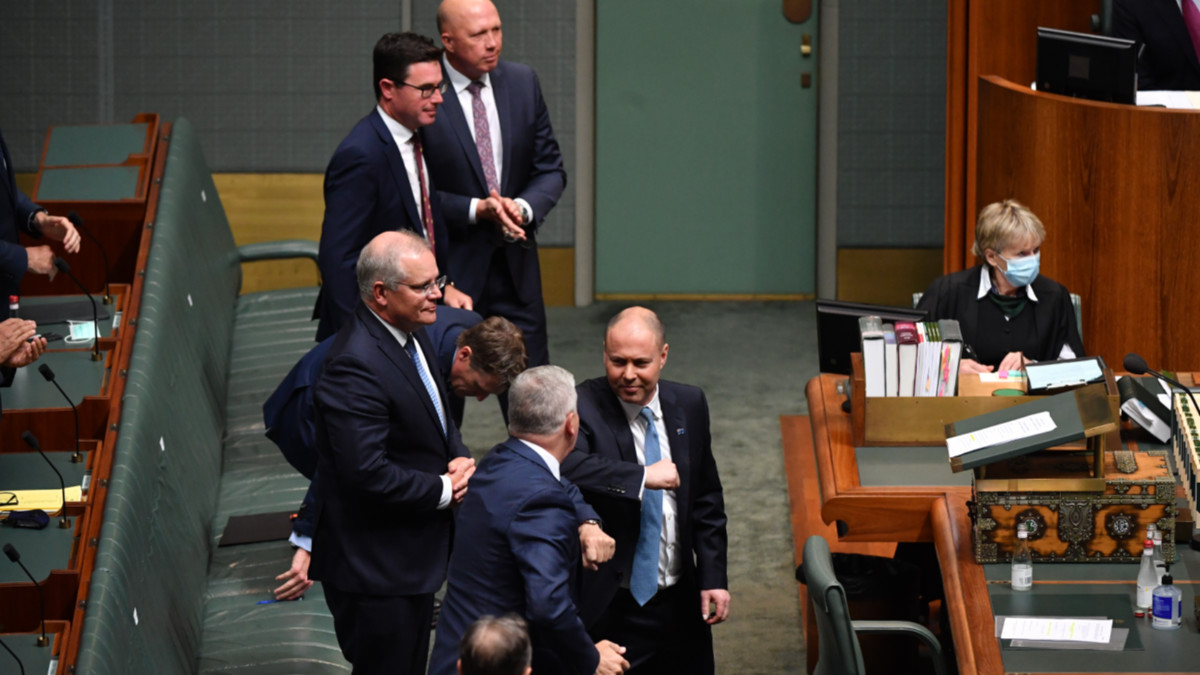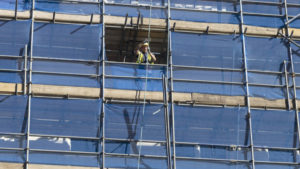The Budget 2020 winners on the ASX: Construction, cybersecurity & defence tech

Which ASX stocks will be winners out of Budget 2020? (Pic: Getty)
A number of ASX small cap sectors are set to be big winners from the federal government’s cash splash.
The budget, handed down last night, aims to get Australia’s economy moving again after the COVID-19 induced recession.
Having previously aimed for a surplus, the government has U-Turned and handed down a budget with a projected deficit of $213.7bn in the hope that the Australia’s economy can recover fast.
The tech and construction sectors in particular are set to benefit from the measures in the budget.
Aiming for a construction boom
The government is investing $14bn on road and rail projects across Australia – aiming to create 40,000 more jobs on work sites.
A handful of pure-play construction companies are ASX listed including small caps FBR (ASX:FBR), WestStar Industrial (ASX:WSI), Acrow Formwork & Construction Services (ASX:ACF) and SRG Global (ASX:SRG).
There are dozens more specialised firms sitting at a different place in the pipeline including home builders Sunland Group (ASX:SDG) and Tamawood (ASX:TWD).
These stocks, as well as finance brokers Mortgage Choice (ASX:MOC), CML (ASX:CGR), Australian Finance Group (ASX:AFG) and Resimac (ASX:RMC) may also benefit from targeted measures to encourage home building.
The budget included an extension of the First Home Loan Deposit scheme that enables first home buyers to get into the market with a deposit as small as 5 per cent.
Other measures include the axing of capital gains tax on certain granny flats from July 1 2021 and the JobMaker program whereby the government subsidises 50 per cent of a new apprentice’s wage.
One government measure that is not part of the budget, but expected to help the sector is the wind back of Australia’s responsible lending laws.
While the HomeBuilder scheme was not extended, it will continue until the years’ end and budget papers projected the scheme to help the sector.
Cybersecurity wins too
Broadly speaking, the tech sector was a winner but there were different measures across different sub-sectors.
Prior to the budget, the Morrison government had already flagged investment in cybersecurity and defence (tech).
True to its word, $1.7bn in additional funding will be given to the cybersecurity sector. While arguably a minuscule amount, it is Australia’s largest ever investment in cybersecurity.
Cybersecurity companies have seen a record year in 2020 and ASX small caps have been no different. One of the biggest winner is Archtis (ASX:AR9), which targets the government sector.
This is thanks to increasing awareness of the impacts of cybercrime, which has risen during COVID-19.
In April, at the peak of restrictions, cybersecurity company Cloudfare estimated online threats had risen by up to six times their usual levels.
It has also been forecast that a significant cyberattack could cost Australia $30bn and 163,000 jobs.
Defence tech has a solid decade ahead
Defence tech also saw investment last night and is set to gain well beyond the current fiscal year.
The government stuck to its target of $575bn in funding to the sector over the next decade.
Furthermore, it was one of six sectors forming a part of the $1.3bn Modern Manufacturing Initiative (MMI). The scheme involves the government strategically investing in projects that help manufacturers scale up and create jobs.
Like the cybersecurity sector, small caps in the defence tech sector have risen off government investment not just in Australia but in North America and Europe too.
One particular small cap, Perth-based unmanned aerial vehicle engine maker Orbital UAV (ASX:OEC) hosted Minister for Defence Linda Reynolds back in July to discuss the applicability of its technology.
Other beneficiaries of the “cash splash”, at least before the budget, include small cap Elsight (ASX:ELS) and large cap Codan (ASX:CDA).
Both stocks have excited investors in recent months with big name orders and are up over 80 per cent in 6 months.
Related Topics
UNLOCK INSIGHTS
Discover the untold stories of emerging ASX stocks.
Daily news and expert analysis, it's free to subscribe.
By proceeding, you confirm you understand that we handle personal information in accordance with our Privacy Policy.








